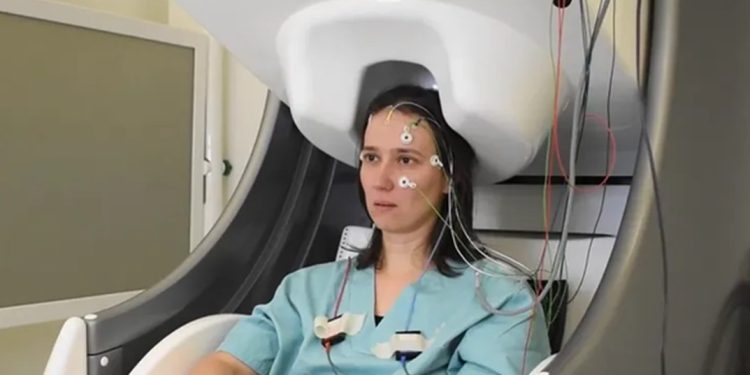Jakarta, Indonesia Sentinel — Meta, the parent company of Facebook, Instagram, and WhatsApp, has unveiled a groundbreaking ‘Mind Reading’ artificial intelligence (AI) technology, capable translating thought into written text. The company claim that its technology has achieve 80% of accuracy.
In collaboration with the Basque Center on Cognition, Brain, and Language, Meta’s AI research team has developed an artificial intelligence (AI) model capable of reconstructing sentences from brain activity.
The system analyzes brain signals to predict the letters a person intends to type without requiring implants or any head-mounted devices. This non-invasive brain-reading technology has the potential to assist individuals who have lost their ability to speak.
How the Technology Works
Known as Brain2Qwerty, the system utilizes magnetoencephalography (MEG) to detect magnetic signals emitted by neurons in the brain. Participants in the study were placed inside an MEG scanner while typing. The AI then analyzed their brain signals to predict the letters they intended to type.
According to Meta, the research aims to deepen the understanding of how the brain converts thoughts into motor actions rather than develop a commercial product in the near future.
“By capturing 1,000 snapshots of brain activity per second, we can pinpoint the exact moments when thoughts transform into words, syllables, and even individual letters,” Meta stated, as reported by Kompas.
Promising Groundbreaking Technology
The study demonstrated that the ‘Mind Reading’ AI system capable to reconstruct sentences without any physical input with 80% accuracy. This study marking a significant advancement in brain-computer interface (BCI) technology.
Read Also:
Tools for Humanity Launches Technology to Verify ‘Human’ in the Digital Age
However, significant challenges remain. The system requires a magnetically shielded room to prevent interference from the Earth’s magnetic field and is highly sensitive to head movements.
It is also far from being practical for everyday use, given its refrigerator-sized structure, half-ton weight, and an astonishing price tag of $2 million (approximately Rp32 billion).
Despite these challenges, the non-invasive approach holds immense potential for the medical field, particularly in assisting patients with neurological disorders or brain injuries. While the technology is still in its early stages, experts believe it could pave the way for breakthroughs in communication for those who have lost the ability to speak.
(Raidi/Agung)

























